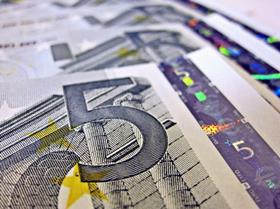
At the beginning of the week, all investors cared about was the bailout extension agreement between Greece and the EU. Would the reform proposals from Athens arrive in time? Would they be acceptable? Would the German parliament ratify the new loan? It turned out that the answer to all the above was yes. So investors shuffled their concerns about Greece onto the back burner. There was no recovery for the euro though: Few investors believe last week's agreement means the end of Greece's problems and this month the European Central Bank begins printing money for its long-awaited quantitative easing programme.
With Greece and the Eurogroup out of the way, investors might have taken the opportunity to chase after some other currency but it seemed they could not be bothered. The Swedish krona did reasonably well as a result of unexpectedly strong growth and retail sales data; the Norwegian krone did badly because oil prices were bogged down again. Sterling and the US dollar kept their noses clean, both reporting growth of 0.5 per cent in the fourth quarter of last year.
Central banks will be the focus this week. The People's Bank of China set the ball rolling on Saturday with its second interest rate cut in five months. On Tuesday there is every chance that the Reserve Bank of Australia could deliver its second cut in two months. No change is expected from the Bank of Canada on Wednesday or the Bank of England and the ECB on Thursday. Investors will be waiting with interest to hear more about the mechanics - or the 'modalities' in ECB-speak - of its quantitative easing scheme.
The week's most important ecostat will be US nonfarm payrolls on Friday. Another strong number will encourage investors to look for an earlier move by the Federal Reserve towards tighter monetary policy.
How the world currencies performed against Sterling:
SEK 0.4%
CAD 0.3%
NZD 0.1%
USD -0.1%
ZAR -0.2%
JPY -0.6%
AUD -0.6%
CHF -0.9%
NOK -1.6%
EUR -1.6%



